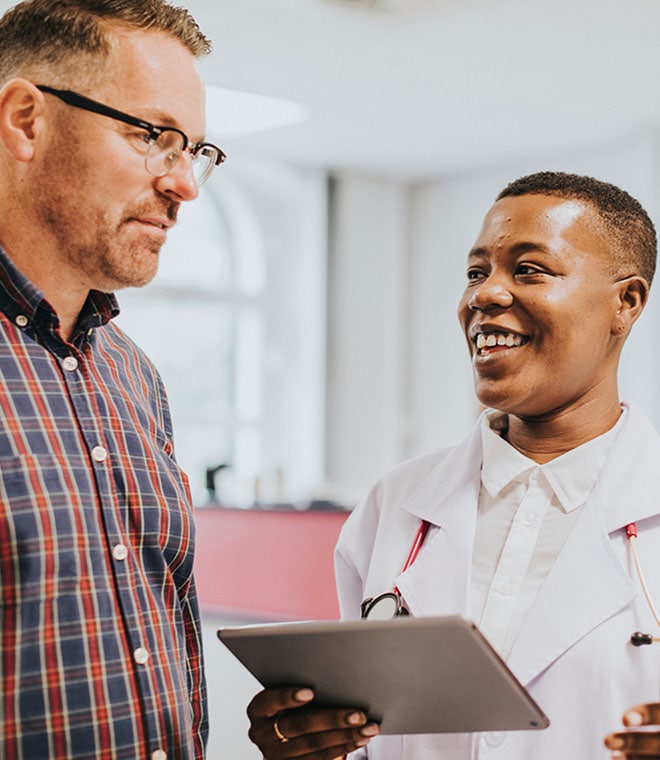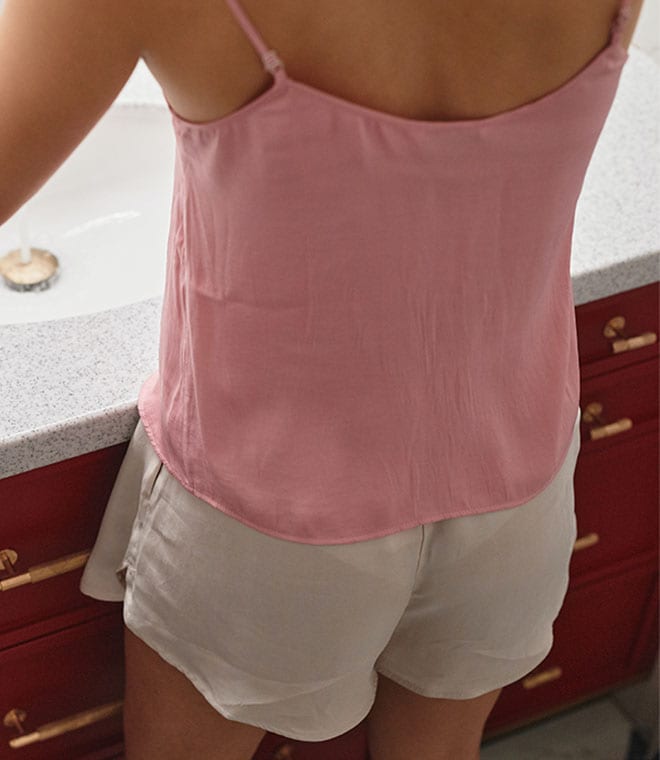Health
Hemorrhoid flare-up: Symptoms, treatment and prevention
By Ekaterina Brodski-Quigley, MD Sep 24, 2024 • 7 min
Many people who experience hemorrhoids do not have symptoms all the time. Oftentimes people feel just fine, and then something might cause hemorrhoids to flare up. Most hemorrhoid remedies are intended to shorten the duration of flare-ups and decrease their severity.
What is a hemorrhoid?
Hemorrhoids occur when the veins in the anus and rectum become enlarged and inflamed, causing pain, bleeding and discomfort. Fortunately, there are many ways to treat hemorrhoid flare-ups.
Symptoms and signs of hemorrhoids
Hemorrhoids can cause anal itching and pain, anal bleeding or bright red blood in the stool. Hemorrhoids sometimes become so large that they can be felt as lumps around the anus. Those lumps can be soft or hard, painful or painless. Usually, the larger they are, the more painful they become. Seek medical care if you experience worsening symptoms, including severe anal pain or bleeding from your rectum. This is especially important if you have pain or discomfort in your abdomen, diarrhea or fever. These could be signs of other health conditions.
Do hemorrhoids itch?
Hemorrhoids can itch in some cases. You may experience hemorrhoids that itch frequently during flare-ups. Internal hemorrhoids less commonly cause itching.
How to stop hemorrhoids from bleeding
Drinking enough water and getting enough fiber in your diet can soften stools, making them easier to pass. This can help ease pressure on the veins and reduce bleeding. Sitz baths can also be helpful for symptoms in some cases. It’s also important to try to avoid straining during a bowel movement. Over-the-counter hemorrhoid treatments, such as creams, wipes and suppositories containing hydrocortisone, witch hazel, phenylephrine and zinc oxide, can also be helpful. Lidocaine cream may help with pain and itching. Bleeding may also be a sign of other health conditions and should be evaluated by your healthcare provider.
Hemorrhoid with fissure
Sometimes hemorrhoids can be accompanied by a fissure, a tear in the skin around the anus that is often painful and may bleed. A hemorrhoid is not the same thing as a fissure. You can have hemorrhoids without a fissure, and a fissure without hemorrhoids. Fissures may be soothed with some hemorrhoid remedies but certain products may cause them to sting or burn.
Blood in the stool or in the toilet bowl can be alarming to see. Hemorrhoids can cause blood in the stool, but this can also be a sign of anal fissure, infection or even cancer. See your healthcare provider if you notice blood in your stool.
Hemorrhoid vs. skin tag
It may seem like you have a skin tag from a hemorrhoid because hemorrhoids can appear like skin tags, which are small flaps of skin that look and feel like a bump.
Thrombosed hemorrhoid
Internal and external hemorrhoids can become thrombosed, meaning the blood inside the vein forms a clot and becomes hard and painful. At this point, your healthcare provider may recommend surgery to remove the clot and relieve the symptoms of hemorrhoids.
Postpartum hemorrhoid
Hemorrhoids commonly occur during or after pregnancy. Treatment for hemorrhoids following pregnancy is the same as for nonpregnancy-related hemorrhoids. Increasing liquids and fiber in your diet and using simple, over-the-counter remedies are usually effective hemorrhoid treatments for most people. If you are pregnant and experiencing hemorrhoids, ask your healthcare provider about safe possible options for treatment.
Are hemorrhoids dangerous?
Hemorrhoids are not usually dangerous, but infection and other complications can occur. Infected hemorrhoids should be evaluated and treated by your healthcare provider, as infection can become life-threatening. Hemorrhoids may cause very uncomfortable symptoms of swelling, pain, itching or bleeding that also may require medical attention. In more severe cases, hemorrhoids may require surgery.
Can hemorrhoids bleed without a bowel movement?
Yes, hemorrhoids can bleed without a bowel movement. Hemorrhoids may bleed due to prolonged sitting, lifting a heavy object, clothes rubbing against the hemorrhoid, and anal sex.
Can hemorrhoids cause constipation?
Hemorrhoids don’t usually cause constipation. Rather, constipation can cause hemorrhoids. But if someone avoids using the toilet because of their hemorrhoids, this can lead to constipation. Increasing fluids and fiber in the diet can be helpful for both constipation and hemorrhoids.
Hemorrhoid medicine and treatment
Most people can benefit from over-the-counter hemorrhoid treatments and lifestyle changes in order to address hemorrhoid flare-ups. If these simple solutions don't work, a doctor may prescribe stronger medications. Surgery may be necessary for more severe cases.
Common hemorrhoid treatments may help relieve the pain and soothe inflammation. These can include:
- Acetaminophen for pain
- Hydrocortisone, for its anti-inflammatory and anti-itching effects
- Ibuprofen for pain and inflammation
- Lidocaine for pain
- Phenylephrine, which causes the constriction (shrinking) of blood vessels
- Witch hazel, an astringent for temporary relief from itching
- Zinc oxide, which prevents the hemorrhoids from rubbing against clothing or skin folds
Most people never need to see a healthcare provider for their hemorrhoids because over-the-counter remedies are often effective. It's important to note that pain relievers, such as acetaminophen (Tylenol) and ibuprofen (Advil), should be taken as directed. Some topical medications, such as hydrocortisone, should only be used for a short duration because of potential thinning of the anal mucosa with long-term use.
Another effective remedy is a sitz bath, a shallow basin that fits inside the toilet and provides a comfortable place to bathe hemorrhoids in warm water.
Hemorrhoid flare-ups are a common problem. Fortunately, many people find relief from their flare-ups with the help of treatment and lifestyle changes. See your healthcare provider if you have any concerns about your hemorrhoids.
Updated by Julie McDaniel, MSN, RN, CRNI, September 2024.
Sources:
- https://www.mayoclinic.org/diseases-conditions/hemorrhoids/symptoms-causes/syc-20360268
- https://www.niddk.nih.gov/health-information/digestive-diseases/hemorrhoids/
- https://www.mayoclinic.org/diseases-conditions/hemorrhoids/diagnosis-treatment/drc-20360280
- https://www.aafp.org/afp/2018/0201/p172.html
- https://www.mayoclinic.org/diseases-conditions/anal-fissure/symptoms-causes/syc-20351424
- https://www.mayoclinic.org/diseases-conditions/constipation/symptoms-causes/syc-20354253
- https://patient.gastro.org/hemorrhoids/
- https://www.merckmanuals.com/professional/gastrointestinal-disorders/anorectal-disorders/hemorrhoids
- https://www.ncbi.nlm.nih.gov/books/NBK537182/
- https://medlineplus.gov/ency/article/000292.htm
- https://www.ncbi.nlm.nih.gov/books/NBK500009/
- https://www.uptodate.com/contents/home-and-office-treatment-of-symptomatic-hemorrhoids



